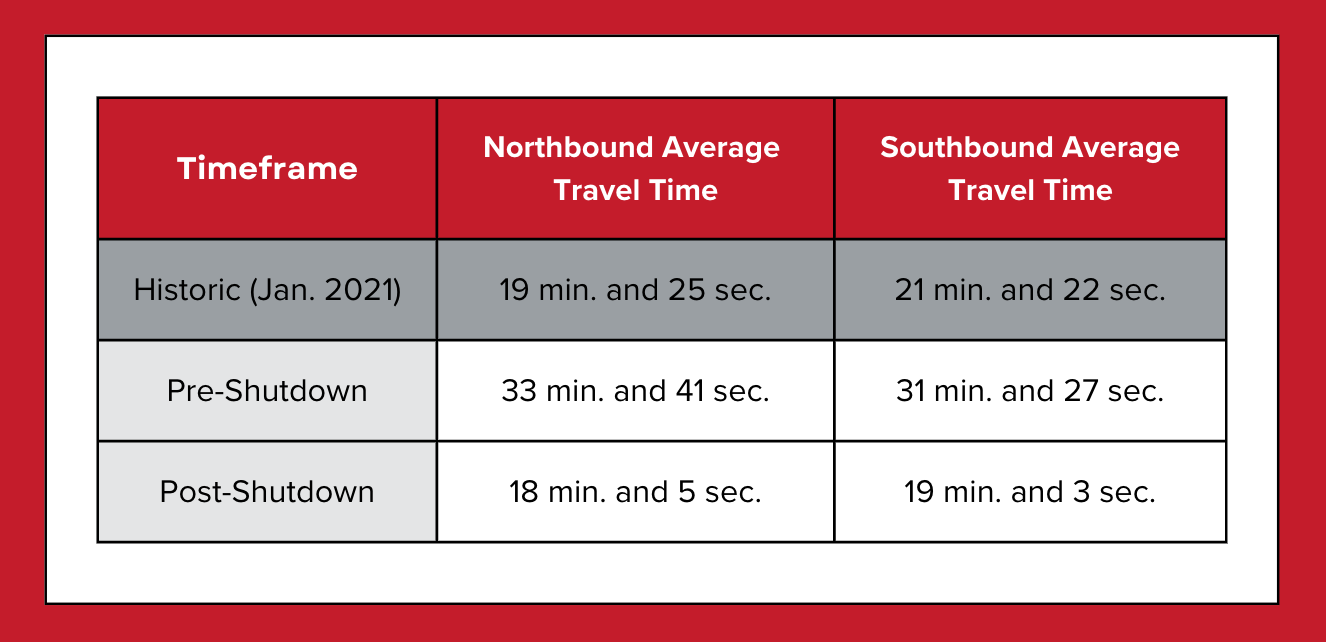TransitMatters Analysis: South Shore, Slow no more
BOSTON, October 9, 2024 — On September 6, 2024, the MBTA began a 24-day shutdown on the Red Line Braintree Branch, suspending service between JFK/UMass and Braintree to complete critical trackwork.
On September 30, 2024, the MBTA claimed it removed 37 speed restrictions across 18 miles of track, improving round-trip Braintree Branch travel times by 24 minutes. And based on our analysis, the agency did exactly that!
Here are the big takeaways from the shutdown:
The T delivered! The Red Line Braintree Branch is slow zone-free, and the entire Red Line is nearly slow zone-free.
This resulted in a time saving of nearly half an hour round-trip for riders.
PRE-SHUTDOWN
In January 2021 (the last month that the Red Line had no slow zones), the average travel time northbound between JFK/UMass and Braintree was 19 minutes and 25 seconds and 21 minutes and 22 seconds southbound.
By the end of August 2024—a week before the shutdown—the average travel time northbound between JFK/UMass and Braintree was 33 minutes and 41 seconds and 31 minutes and 27 seconds southbound.
POST-SHUTDOWN
A week following the shutdown, the average northbound travel time between JFK/UMass and Braintree was 18 minutes and 5 seconds and 19 minutes and 3 seconds southbound for over 27 minutes of saved round-trip travel time, as the T promised. Our Slow Zone Tracker also shows that the T removed all slow zones on the Braintree Branch.
This shutdown, a critical part of the Track Improvement Plan (TIP), was vital to improving service and reliability for the thousands of riders the Red Line sees weekly. Along with the trackwork, the T made essential station repairs and improvements, including repairs to the pedestrian overpass and roof at JFK/UMass Station.
Riders impacted by this shutdown were among the hardest hit, overwhelming alternative Commuter Rail and shuttle service capacity. However, following this shutdown, the MBTA hopes to see Red Line speeds return to 40 mph and potentially increase to 50 mph.
Still, a couple of slow zones remain today. In both directions, between JFK/UMass and Andrew, riders see 46 to 69 seconds of delay. Southbound from Central to Kendall/MIT, riders are seeing 28 seconds of delay. The T will address these remaining slow zones in brief shutdowns in November.
Two remaining Red Line shutdowns planned for this year will hopefully remove the final three slow zones on the Red Line.
November 5–10: Broadway to North Quincy
November 18–24: Harvard to Broadway
Even with the few slow zones that still remain on the Red Line today, this work marks a monumental point in the T’s efforts to eliminate slow zones across the network and fortify transit across the region.
To keep up with all things MBTA shutdowns, please visit mbtashutdowns.info.
Photo credit: Brooke Winter



